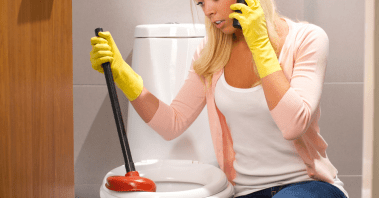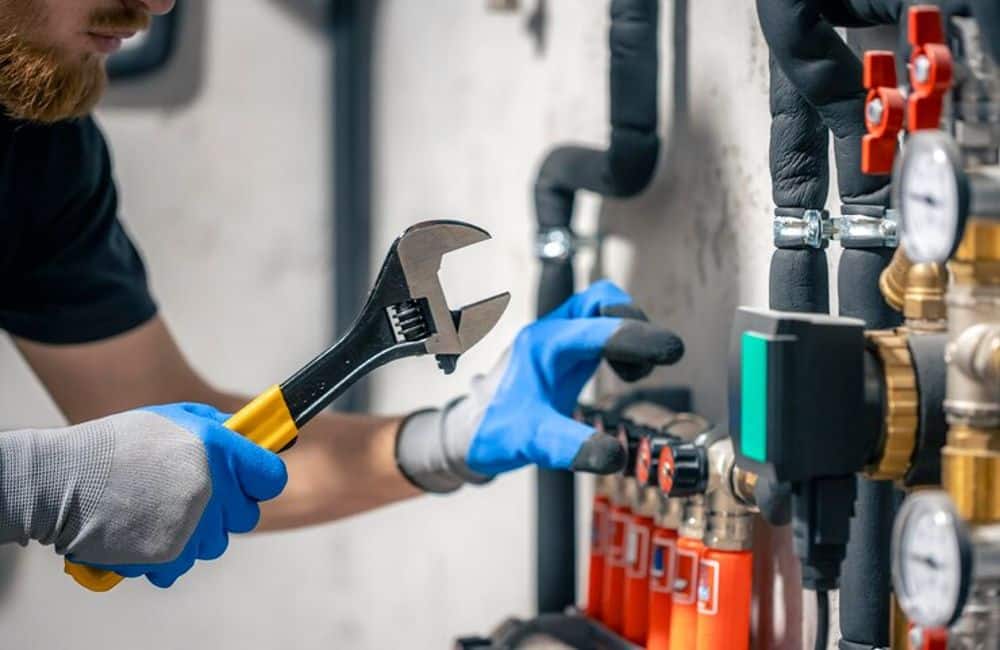Addressing Emergency Plumbing Problems: Fast Tips Until Professional Help Arrives
Addressing Emergency Plumbing Problems: Fast Tips Until Professional Help Arrives
Blog Article
This great article below about Expert Tips for Managing a Plumbing Emergency Until Help Arrives is without a doubt interesting. Give it a try and draw your own results.

Pipes emergencies can strike at any time, causing stress and anxiety and possible damages to your home. Whether it's a burst pipe, a clogged up drainpipe, or a leaking faucet, recognizing just how to handle the situation until a specialist plumbing technician shows up can save you from more problems. This article gives necessary emergency pipes ideas to help you mitigate damages and restore control throughout a plumbing crisis.
Switch off the Water System
The first step in any kind of plumbing emergency situation is to turn off the water supply. For local problems, such as a dripping faucet or toilet, switch off the valve near the component. In the case of a significant leak or ruptured pipe, locate your home's major water shut-off valve and transform it off right away. Knowing the place of these shutoffs beforehand can conserve valuable time during an emergency situation.
Shut Off Your Hot Water Heater
In particular emergencies, such as a ruptured pipeline, it's a good idea to turn off your hot water heater. This avoids getting too hot or damage to the system when water stops streaming. Switch off the power supply to the water heater (electric or gas) and allow it cool off to prevent potential threats.
Temporarily Stop a Ruptured Pipeline
A burst pipe can bring about considerable water damages in minutes. To alleviate the concern:
Call a professional plumbing quickly to address the issue completely.
Have an Emergency Plumbing Set
Prepare a standard plumbing emergency set to take care of minor problems successfully. Your package needs to include:
Having these tools handy can make a substantial difference in your ability to handle emergency situations.
Unclog Drains Pipes Securely.
A clogged drainpipe can be an aggravating and messy problem. Right here's exactly how to tackle it:.
If these approaches do not function, stay clear of making use of too much pressure, as it might aggravate the obstruction.
Handle Overflowing Toilets.
An overflowing toilet can cause immediate chaos. Here's what you should do:.
Address Small Leakages with Short-lived Fixes.
Small leakages can promptly come to be substantial issues if left untreated. Utilize these short-term fixes until specialist aid shows up:.
While these solutions aren't long-term, they can help minimize water loss and damages.
Manage Frozen Pipeline Carefully.
In chillier climates, frozen pipelines are a typical emergency. If you believe an icy pipe:.
Know When to Call a Specialist.
While quick fixes can help briefly, particular plumbing problems call for prompt professional interest. Call a plumbing professional if:.
Without delay contacting a professional guarantees the problem is settled correctly and avoids additional issues.
Stop More Damages.
Taking fast action to minimize damage can save you time and money over time. Right here's just how:.
Verdict.
Pipes emergency situations can be overwhelming, however with the ideal understanding and tools, you can handle the circumstance efficiently until help arrives. By turning off the water supply, resolving tiny leaks, and using short-term fixes, you can minimize damages and maintain your home safe. Bear in mind, these ideas are momentary services; always consult a qualified plumber to handle the root cause of the issue. Preparation and quick thinking are your best allies in any pipes emergency situation.
8 Helpful Tips for Managing Plumbing Emergencies at Home
If your plumbing system hasn’t failed once, wait for it because almost everyone has a story to tell. Sometimes, it could be simple emergencies such as a leaking pipe, a blocked cistern, or even a big burst pipe. In situations like this, you need to have some handy tips to save you some money and from possible damages.
Take care of minor issues early.
Sometimes, you could have avoided an emergency by taking proactive measures while it was still early. Some major plumbing emergencies can be a result of an ignored minor issue. We recommend that you have items like plumbing tapes and other related items. A plumbing tape can allow you to manage minor leaks before the plumber arrives.
Cut off the water supply.
This tip is essential in almost any type of leakage problem. For problems like minor leakages in the toilet or kitchen, turn off the supply that takes water to the affected pipes. If the leakage is a major pipe, you must shut off the supply valve to the entire building. This will help you avoid flooding your home and neighbors if you share a flat.
Know your plumbing system
Folks typically move into a new apartment without understanding the water supply around the building. This can prove disastrous if a water emergency arises and the plumber is far away. The previous tip will prove useless if you don’t practice this one. More importantly, know where your water shut-off valve is located – you’ll need that knowledge to prevent potential home floods.
Have some common handy tools
There are lots of plumbing emergencies that you can handle without hiring a plumber. That’s why you must keep some tools available always. Some tools that you can use to fix simple plumbing emergencies easily include plumbing tapes, screwdrivers, thread seal tapes, plungers, pliers, tape measures, and rubber gloves.
Insulate your pipes from cold
You’ll save yourself from many plumbing expenses if you protect your water pipes from the cold. This is because of the harmful effects that cold weather can have on your pipes. During winter, your pipes can burst from being overly expected to freezing temperatures. So, make sure insulators are there to keep the pipes working correctly.
Avoid practices that will clog your toilet.
Many people indulge in practices that can damage the plumbing system of the entire building. One of these is when they use their toilet to dispose-off garbage. They flush all kinds of things, such as paper towels, bandages, hairs, female sanitary products, etc., down the toilet. This will block your toilet in the long run, incurring unnecessary expenditures. Dump such waste in the trash instead.
Check your dials regularly.
Sometimes, there could be leakages in your home without noticing them in time. So, constantly monitor your water meter dial. If the dial is reading when there is nobody using water, this is an indicator that there is leaking. Check for leaks immediately. Call a plumber as soon as possible if you can’t find any.
https://www.constructionplacements.com/8-helpful-tips-for-managing-plumbing-emergencies-at-home/

Hopefully you enjoyed our section on Expert Tips for Managing a Plumbing Emergency Until Help Arrives. Thank you for taking time to browse our post. Sharing is nice. Helping people is fun. We treasure reading our article about What to Do While Waiting for an Emergency Plumber.
Top Article Report this page